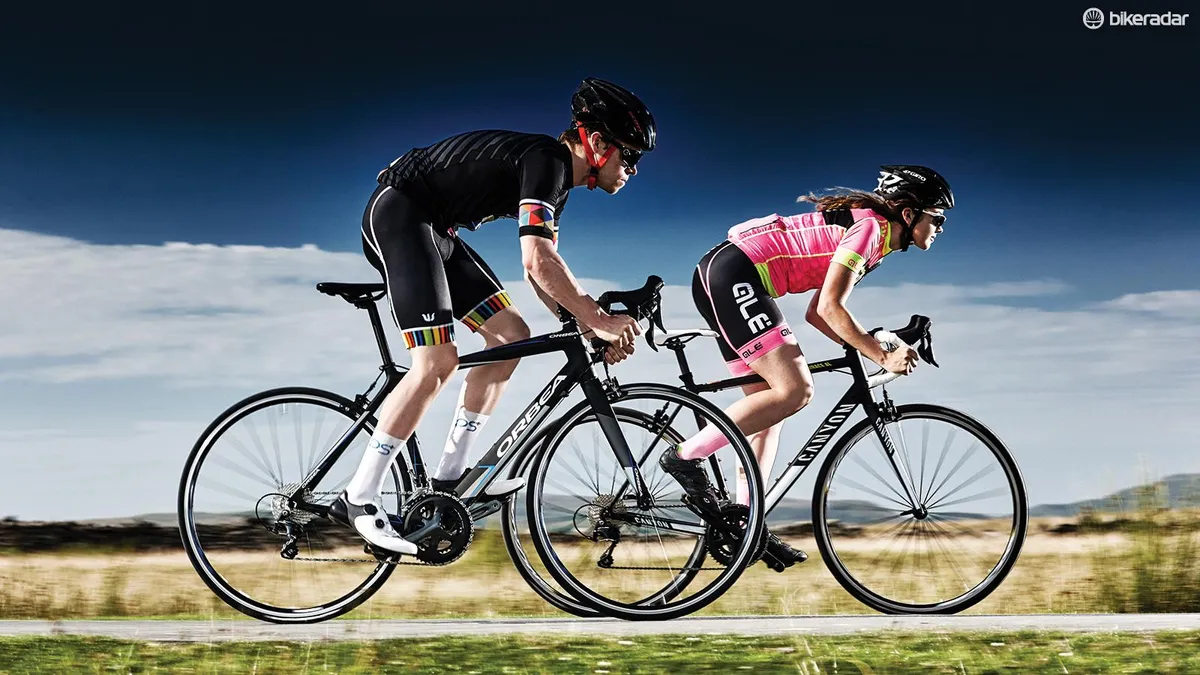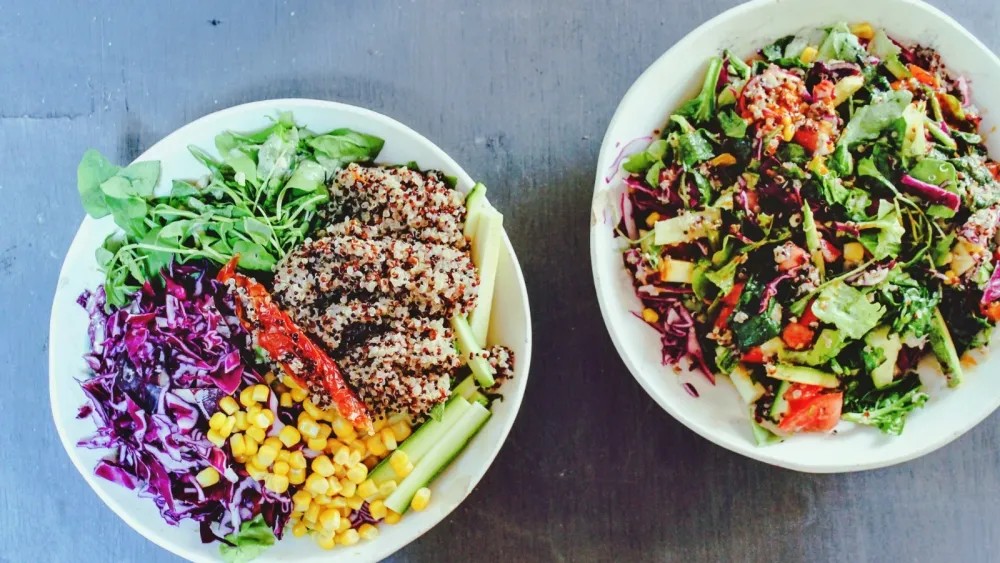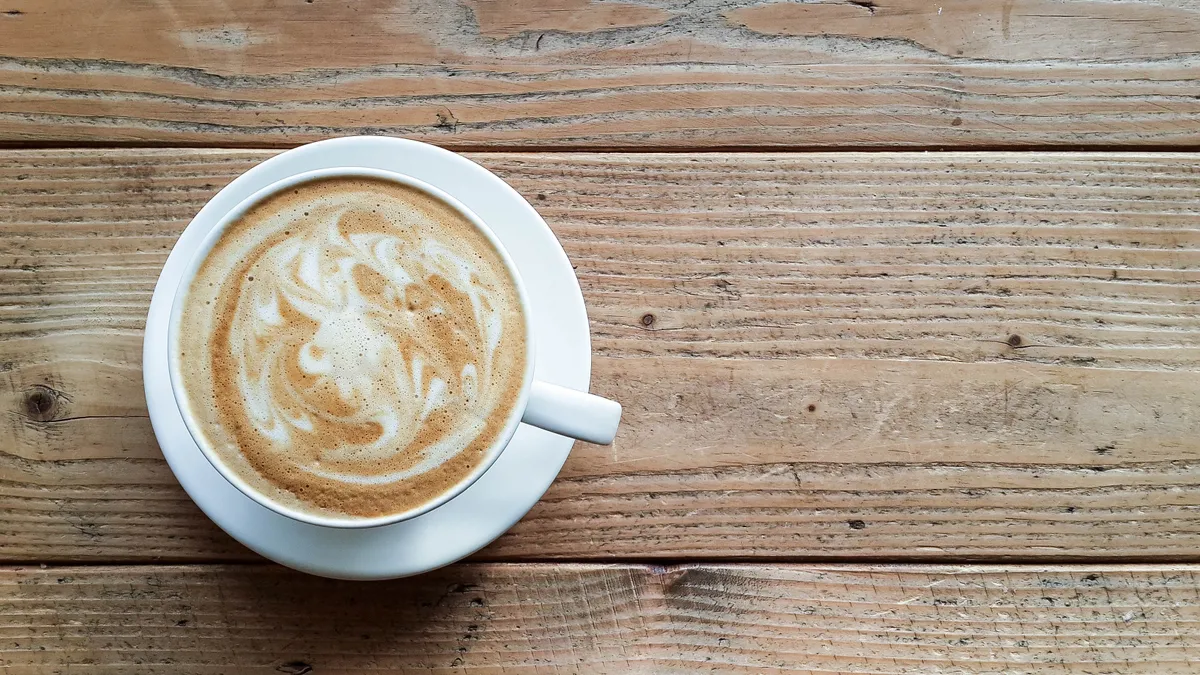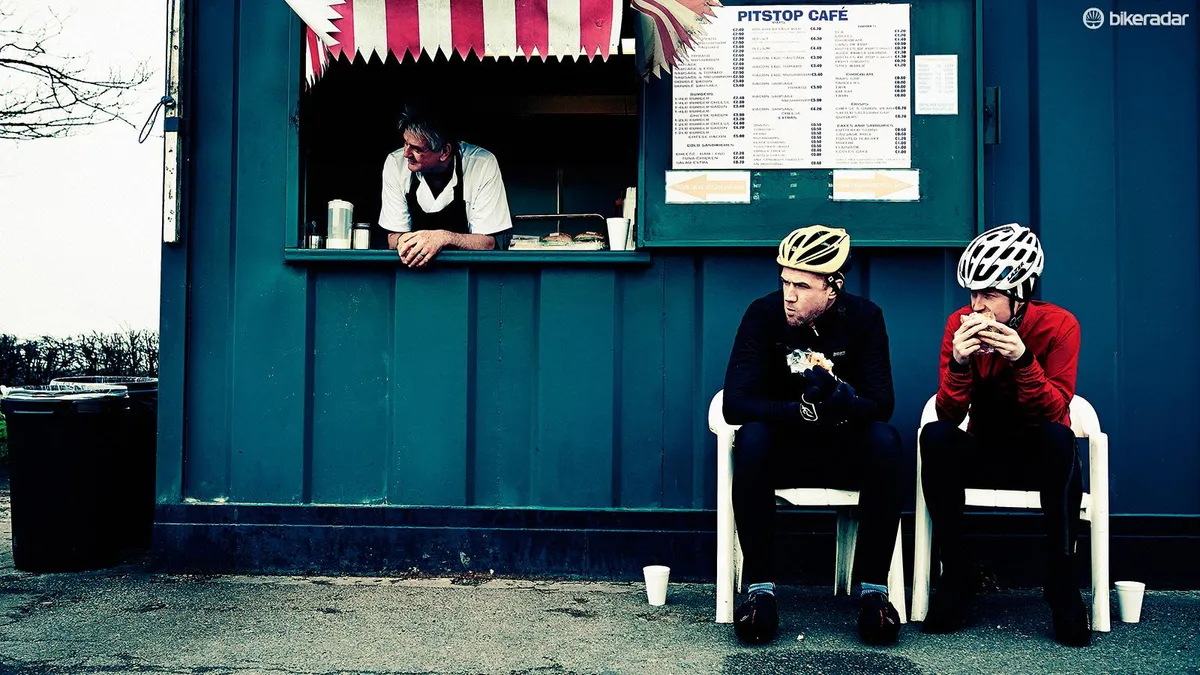From carb loading to consuming coffee, we consider some of the established rules of nutrition and aim to discover whether they are food fact or fiction.
- How to stay hydrated
- Why you don't need to give up bread to lose weight
- Women's Cycling reviews and products on BikeRadar Women
1. Carbs make you fat
Fiction! “On the contrary,” says Carly Tierney, nutritionist with DW Fitness. “Eating a diet packed with the right kind of carbs is the secret to getting and staying slim. The key thing is to choose the right types. Think less about reaching for crisps, white bread and pasta and opt for slow-releasing carbs like sweet potato, quinoa, wholemeal bagels and pittas, and brown rice.”
The right types of carbs fill you up, maintain your blood sugar levels, increase your metabolism and provide fuel for exercise, meaning that you push harder, perform better, get stronger and use more energy when training.
“Yes, that means you can eat more and still lose weight,” says Tierney. “A diet without carbs will make you miserable. Low-carb diets can make you feel anxious and depressed, as carbs are the main fuel source for the brain. Just another reason to grab a banana before you get on your bike.”
2. It’s necessary to carb-load before rides/races
Fact! “For any ride, having a full tank of fuel and being hydrated is ideal but the reality is that for shorter rides the requirement is a lot less,” says Gareth Nicholas, MaxiNutrition’s expert nutritionist.
It’s more about what you’re trying to achieve from a ride. “From a distance and intensity perspective, fuel and fluid are crucial factors of a good ride, but a cyclist’s approach should be different for a 20km ride versus a 100km one. A training ride will have varying desired outcomes but for a race, peak performance is the likely intended result, so carb loading might be an essential part towards success.”
3. Fat will fuel your ride for longer
Fiction! It’s true that for a gram of fat the energy yield is greater than an equivalent gram of carbohydrate and/or protein, (9kcal versus 4kcal respectively). “But when it comes to converting energy into useful fuel for cycling, the human body selects the predominant energy source based on the exercise intensity,” explains Nicholas.
At the highest exercise intensities carbs remain king
Typically, for any endurance event the fuel of choice is carbohydrate and as exercise intensity increases the demand on carbohydrate also increases. “In the absence of carbs the body can be trained to utilise fat, but at the highest exercise intensities carbs remain king. It’s worth adding that it’s never one fuel or another it’s always a mix, a layered approach, which is determined by the exercise intensity and duration.”
4. Protein will make you a leaner cyclist

Fiction! “From an exercise perspective protein directly affects muscle development and growth, especially when combined with resistance exercise (muscle stimulus),” says Nicholas. “It’s very speculative to suggest that protein will make a cyclist leaner especially as protein is an energy and, as with all energy, it’s either stored, used or transferred.
“What could be suggested is that with the appropriate dietary protein content and training a muscle will become more efficient, leaner and have greater function, therefore protein is an essential nutrient in a cyclist’s diet.”
5. Only drink when you’re thirsty
Fiction! This is a hot debate in sport science and is likely to be sport specific.
“From a running example, the more you drink the heavier you will be and as a result that might slow you down,” says Gareth Nicholas. “For a cyclist, that water is already being carried on the bike and so drinking will only reduce the overall weight of the cycling unit (including evaporation and so on).
“When you’re cycling, you need to consider that you are drinking not for the immediate response but to keep everything ticking along in the hours to come"
“From a physiological response to exercise, being hydrated and maintaining hydration can have a direct relationship to performance. Dehydration is certainly negative to human physiology and at greater levels can have serious consequences. However, in the elite cycling community, dehydration is another factor to manage and the winners of many races often report levels of dehydration.”
A sensible approach, particularly for new riders, would be to maintain your hydration levels by matching your sweat loss.
“When you’re cycling, you need to consider that you are drinking not for the immediate response but to keep everything ticking along in the hours to come,” explains Nicholas.
6. There is an optimal macronutrient ratio

Fiction! “Macronutrient ratios are the most simplistic way to design a nutrition programme,” says Nicholas. “As a start point for sport the 60:20:20 rule is often applied, being 60 percent carbohydrate, 20 percent protein and 20 percent fat. In reality a diet for sport, and in particular cycling, should be constructed on a session-by-session basis.”
It’s important that carbohydrate is the predominant macronutrient, but it’s more practical for athletes to be given recommended intakes in weight.
“A better starting point is to consume 5-12g of carbohydrate per kg of body weight, it’s a range that allows you to eat more or less depending on the exercising demand and desired outcome — you’ll need more carbs to go harder,” explains Nicholas. “Protein should be consumed between 1-2g per kg of body weight, dependent on exercise type, duration and intensity and the resulting muscular effect. Fat is often ignored as its benefit in sport remains undecided, but it is essential and should be consumed, typically lower in saturated bad fats and higher in polyunsaturated good fats.”
7. Red wine can make you better
Fiction! “Alcohol abuses the body,” says Tierney. “It pushes aside protein, carbohydrate and other nutrients, which muscles need for their recovery and growth, and demands to be metabolised first. It will always take precedence.
This deprives your post-exercise body of the things it needs most and, thereby, sabotages any potential improvement in performance.”
Alcohol can also have a negative impact on your actual training performance as you become dehydrated and lack energy due to disturbed sleep and decreased absorption of nutrients from foods that you consume.
“It’s not all dire, but there is a reason most top athletes don’t drink a lot,” says Tierney.
8. Cycling can ruin your teeth
Fact! Cyclists will often experience the feeling of a dry mouth as they will breathe heavier and the wind resistance can have an effect on the production of saliva,” says Tim Bradstock-Smith, consultant cosmetic dentist at the London Smile Clinic. That saliva protects and ‘self-washes’ the teeth.
Cyclists are often victims of clenching their jaws
“Regularly sip water to encourage saliva production. Sports drinks can be sugary and acidic, which can cause premature wear on the surface of the teeth. Cyclists are also often victims of clenching their jaws and grinding their teeth, causing jaw problems and pain. Consider wearing a gum shield to protect your teeth while riding, especially in the event of an accident.”
9. Skipping breakfast will make you slimmer
Fiction! “After sleeping, your body has undergone a long period without food and needs an energy boost to fuel for the coming day,” says Tierney. “When you eat less energy than your body needs, the body adapts by making the most of the food it does receive. It holds on to fat stores and begins using the muscle to provide energy you’re depriving it of. This loss of muscle mass slows down your metabolism. Research has also found that restricting food can make you irritable. This stress can cause a rise in cortisol, which increases the storage of visceral fat cells in areas like your stomach, the opposite of what we try to achieve from dieting.”
10. Homemade sports drinks are just as good as branded ones
Fact! Cyclists need sports drinks that are high in carbohydrates to maintain their energy levels over long periods of exercise. “The carbohydrate part is pretty cheap, it’s often the fancy bottle and added ingredients that are expensive,” explains Tierney.
Add ice and a slice of lemon or lime to add some zing
“The flavour is important because it’s human nature to drink more of something you enjoy the taste of. Water mixed with sugar and salt is a perfect and effective homemade sports drink but isn’t as interesting as branded ones. If you want to save some cash without compromising on taste, here are a couple of ideas to get you started. Add ice and a slice of lemon or lime to add some zing.”
- Totally Tropical: 500ml water; 200ml coconut water; 40g of sugar; 1/4 tsp of salt
- Taste Of Honey: 8ooml water; 1/4 tsp of salt; 2 tbsp of sugar; 1 tbsp of honey; 60ml pineapple juice
11. Coffee makes hard rides less daunting

Fact! We’re not talking about caffeine here, but specifically hot brews. In a recent review of trials — published in the International Journal of Sport Nutrition and Exercise Metabolism (June 2016) — featuring 135 cyclists, researchers found that drinking coffee before exercising significantly reduced perceived exertion.
They also confirmed that drinking coffee at least 60 minutes before exercise improved performance, by almost 25 percent on time-to-exhaustion trials, and by about three percent on time-to-completion trials when compared with a placebo.
12. Caffeine boosts weight loss
Fiction! Caffeine has long been held as the hero to help get you through the afternoon slump. From a supplement perspective, the European Food Safety Authority (EFSA) recognises that caffeine supports concentration and alertness, which are both good attributes for cyclists.
“Anecdotally, there is the perception of lowering the exercise intensity or ‘feeling the buzz’,” says Nicholas. “A link, therefore, could be made between working harder and being more active and weight loss but this could only be seen as an indirect response to caffeine rather than an approved health claim.”

